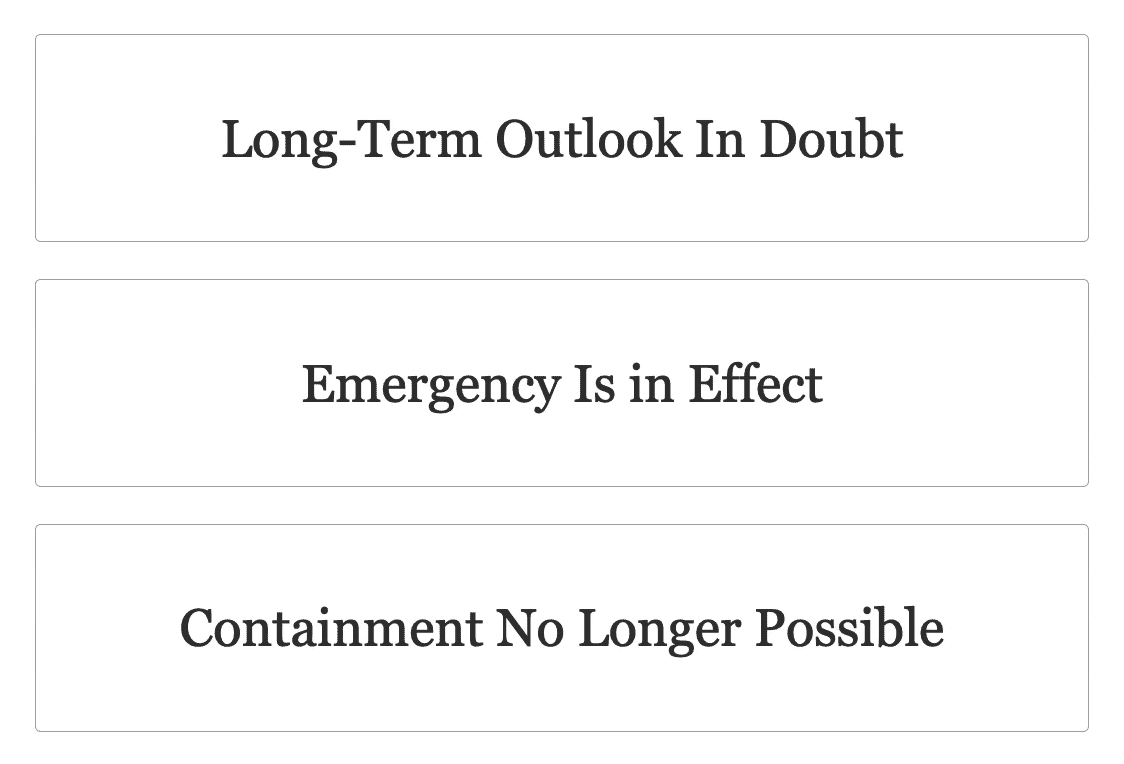
"The Endless Doomscroller" – a constant stream of bad-news headlines – is Illinois researcher and artist Ben Grosser's latest project. He examines what compels us to keep "doomscrolling," and who benefits.
Courtesy Ben Grosser
CHAMPAIGN, Ill. — The bad news seems endless. And as part of Ben Grosser's latest project, it truly is.
"The Endless Doomscroller" is a constant stream of headlines, endlessly scrolling, that tell us "Cases Surging," "Panic Rising," "Global Crisis Looms" and "Experts Say It's Never Getting Better." Grosser – a professor in the School of Art and Design and the co-founder of the Critical Technology Studies Lab at the National Center for Supercomputing Applications at the University of Illinois, Urbana-Champaign – describes the project as "an endless stream of doom, without all the specifics."
It refers to the habit of "doomscrolling," or losing oneself in the bad-news headlines on various news sites and social media platforms.
"So many of us find ourselves regularly, and almost involuntarily, scrolling bad-news headlines on our phones," Grosser said. "We can't help but focus on these streams of headlines that announce terrible things. I'm as susceptible to this as anyone. It's interrupted my sleep."
Grosser said he asked himself why we do this, and what encourages us to keep scrolling late at night when we should be sleeping. The answer, he said, is that social media platforms have become fully integrated into our lives and are designed to keep us engaged.
"It's a perfect-yet-evil marriage of everyone stuck online, social media interfaces designed to hold our attention and the realities of a global pandemic," Grosser said. "It's really hard to avert our eyes, especially when the information is coming through interfaces that are designed to be addictive. Right now, what will keep us on social media platforms is another bad-news headline.
"There's a way in which bad news activates us involuntarily," he said. "Evolutionarily, we're designed to be more vigilant in the face of danger. Right now, the world is more dangerous than it was, and we can't help but watch it. The social media platforms are really keyed into that."
While we need to pay attention to the news in order to keep ourselves safe, the recommendations for personal safety haven't been changing all that much and the headlines are not giving us new information, he said.
"The headlines are terrible, but they're reusable," he said. "They're created to capture our attention and hold it for as long as possible. There are winners and losers in this moment. Big tech is the winner and, as is often the case, users are not. Users are the losers."
"The Endless Doomscroller" serves as a tool for mindfulness, helping us to become conscious of the activity we're engaging in all the time, Grosser said. It can also serve as exposure or substitution therapy, "a way to escape or replace what these interfaces want from and do to us," Grosser wrote in the project's description.
"In other words, perhaps the only way out of too much doomscrolling is endless doomscrolling."






